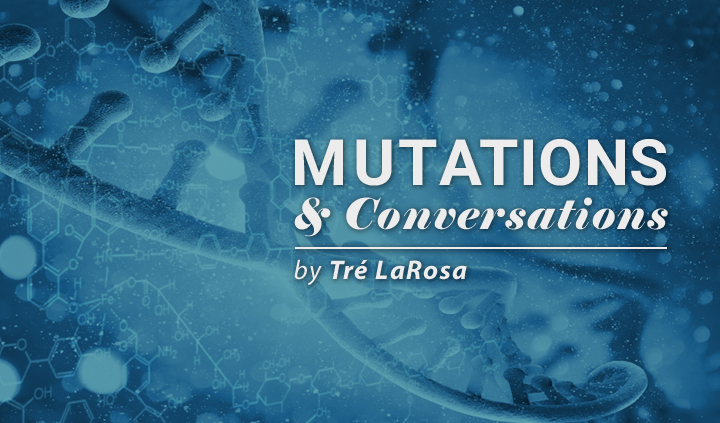How We Capitalize on ‘Five Feet Apart’
Written by |

The CF community’s strength is in its powerful, far-spread voice. For people with a chronic disease, and doubly so when that chronic disease is rare like CF, it is critical for the community to be involved and educated. The CF community is exactly that.
When a perfect storm brews, however, it is natural for the vocal nature of the CF community to be, well, not exactly gentle in their critiques and responses to what may be considered negligence. As a community, we understandably are concerned when something about us is made without including dozens of people with CF in the production. This was the case with the film “Five Feet Apart,” a romantic drama about two young cystic fibrosis patients.
It is true that Claire Wineland, a beloved late member of the CF community, was involved heavily in the production of the film, even meeting the leading actors. CF is a spectrum disease, though. Without consulting dozens of people with CF or involving multiple people with CF in producing the film, there was no surefire way the entire community could be comforted by the disease’s portrayal.
With spectrum diseases come varying opinions. The opinions in the CF community can vary as widely as the disease manifestation itself, if not more so. In that way, some in the community were ecstatic to hear the film was being produced. Yet, a significant contingent of people was furious that someone would romanticize and profit off this horrific disease. As it usually is with hyperpolarized topics, both sides were vocal about the film.
Discuss the latest research in the Cystic Fibrosis News Today forums!
When I first saw the trailer, I wasn’t sure how to respond. I was anxious but oddly proud of hearing “cystic fibrosis” by an actor that I loved as a kid. Mostly, I was worried about how CF would be portrayed. It was clear this was a love story between two sickly teenagers. In my mind it was a double-edged sword: CF should be portrayed accurately to ensure the community is fine with it, but it was also going to be a movie accessible to people that are extremely unfamiliar with CF, which means it may trigger some to feel pity for the community. The other most prominent feeling I felt was powerlessness.
The CF community is rather small compared to those of other diseases, but it’s one that is mostly welcoming. Our community is accessible and we are generally on the front lines when talking about the disease. Once a film of this caliber portrayed CF and put it on the silver screen, the most common critique was how it removed us from the conversation. There’s a relevant expression made popular by the disability rights movements of the 1990s: “Nothing about us without us.” It felt like this movie was being promoted almost as a favor to feature our disease and our most intimate lives for millions to see to “spread awareness.”
To casual viewers, it’s probably true that the film would not have been that much different with more involvement from our community. But to reiterate: Something that is made about someone not directly involved and without serious backing from the community feels at best inconsiderate to us and at worst as if they are profiting from our suffering. All of this is to say that I don’t think anyone in the community would have argued for less community involvement, which may have been the only thing we all agreed on.
I chose to coordinate a private showing for friends and family. The local news caught wind of it and ran a feature story about our private screening. I wanted to lead the dialogue surrounding the film for those who know me directly. I planned to share my opinion with the moviegoers immediately once the credits rolled, whether I liked it or not.
The film has been released and opinions have been shared. I thought the film was fine — it gave a relatively accurate insight into the lives of those of us with CF. There were obviously a handful of things that we could nitpick over, but truth be told, I’m not sure fixing those things would have had any effect on the final version. At the end of the day, a love story was made about two sick teenagers. Everyone’s opinions regarding that topic are valid and must be acknowledged.
The more important question is how we move forward. How do we capitalize on the newfound awareness around CF? Our community is strong, intelligent, and collaborative. I’m confident we will move forward and keep this steam going, all opinions included.
We should be on the front lines from here on out.
Follow along with Tré’s other writings on his humbly named site, www.trelarosa.com.
***
Note: Cystic Fibrosis News Today is strictly a news and information website about the disease. It does not provide medical advice, diagnosis, or treatment. This content is not intended to be a substitute for professional medical advice, diagnosis, or treatment. Always seek the advice of your physician or other qualified health provider with any questions you may have regarding a medical condition. Never disregard professional medical advice or delay in seeking it because of something you have read on this website. The opinions expressed in this column are not those of Cystic Fibrosis News Today, or its parent company, Bionews Services, and are intended to spark discussion about issues pertaining to cystic fibrosis.








Helen
I’m yet to see the film here in Australia. It starts later this week. Our daughter has CF, and I know everything in the film will not relate to her life with it. For one, here in Australia CF patients don’t use a vest, generally. That’s one thing not the same as out journey. But, as with most things, awareness and getting the name out there can only benefit, in varying ways, by showing non CF families what life is like with this disease. I can’t wait to see the film with my family.....but not on the first weekend maybe a week or so in.
Tré LaRosa
Thanks so much for your comment, Helen. This is a really valuable point: This film was clearly catered to American audiences. It's critical that voices from around the world are included.
I agree, though, that the awareness is good and I'm hoping it allows us to continue being on the front lines.
Michelle Márquez
Hi my girlfriend has Cystic Fibrosis we are a mexican couple gay so in our style of live its so different, she also is diabetic, so imagine how complicated things we live in a country that is male chauvinist. We are so happy that a lot of people its going to know about this disease, it could be good if you can talk about our experience, you can visit @viviendoFQ.
Its important also talk about the partners of Cf.
Luisa Palazola
Hola Michelle, yo soy Luisa y yo soy la "Community Manager" para CF News Today y tambien soy hija de Venezolana. Creo que sigo @viviendoFQ en nuestra cuenta en Instagram. De que lo que yo sepa, la experiencia de una person con FQ en Latina America es super diferente de las experiencias en los Estados. Hablo mas acerca de la cuestion de acceso a los medicamentos. Y no puedo imaginar la interseccionalidad entre siendo una persona con una enfermedad crónica y siendo parte de la comunidad LGTBQ+ es una experiencia que no es super reconocido. Hace algunas semanas, una de nuestras columnistas escribio sobre su experiencia siendo parte de la comunidad LGBTQ+ y se formo un lío! Pues nuestro equipo quedamos en shock, pero en solidaridad con la comunidad LGBTQ+.
Aunt Gina
Tre', like you said, it brings awareness, and from what I understand about orphan diseases, it is hard to get research dollars, and this to me is positive, since the movie spreads awareness world wide. Correct me if I am wrong. Also, CF opinion aside, the movie was moving, had a love story and kept the audience engaged and having a movie that is likeable will be around for a very long time. That can't be said for all movies.